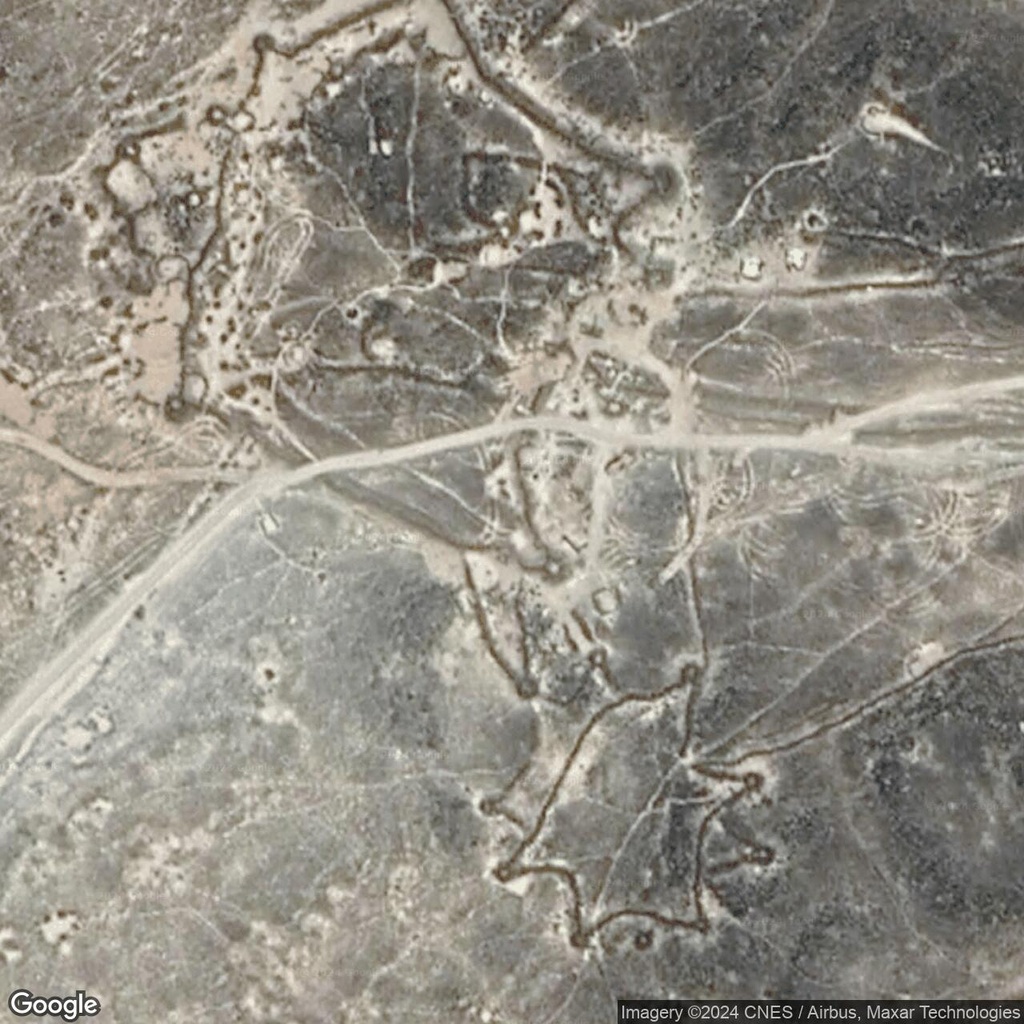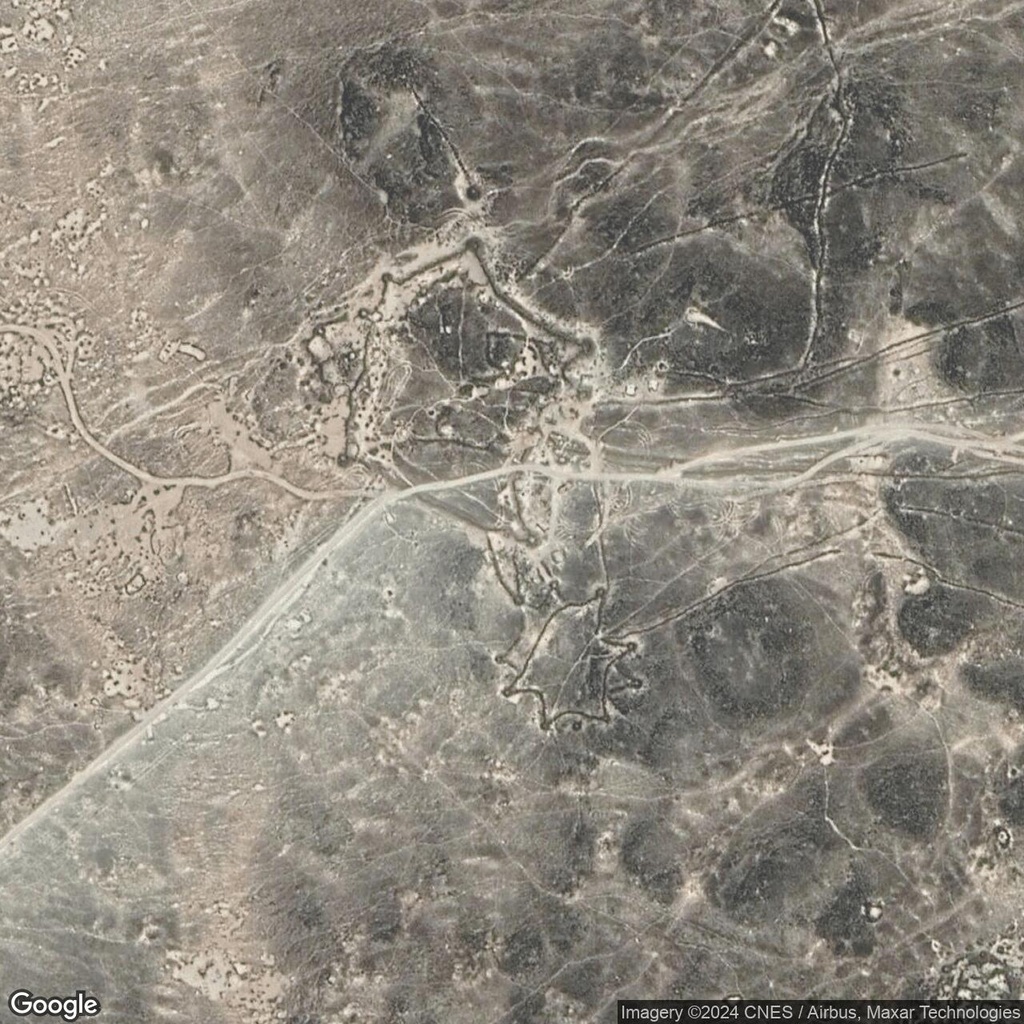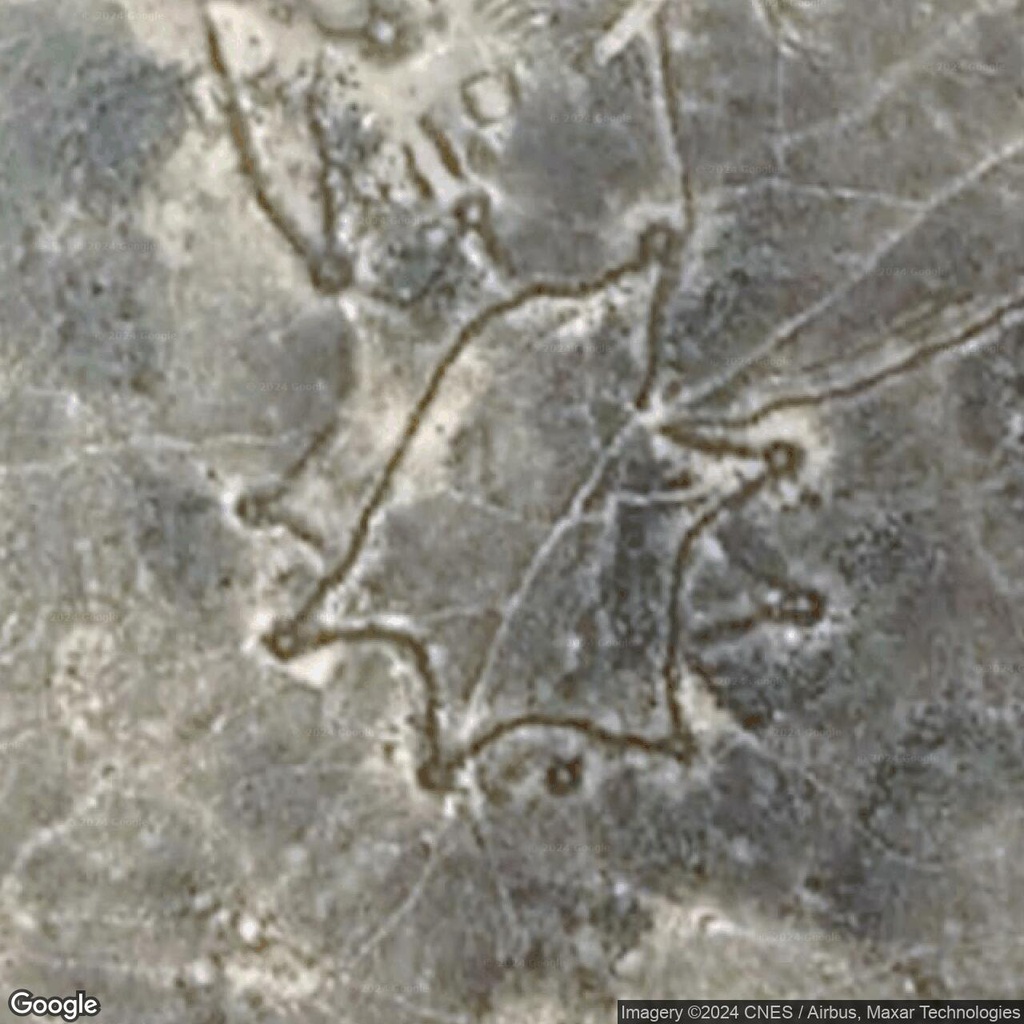Ancient Geoglyphs Near Al-Safa Volcano, Syria
| Location: | As-Suwayda District, As-Suwayda Governorate Syria |
|---|---|
| Coordinates: | Latitude, Longitude 32.9645469, 37.2609235 |
A Mysterious Network in the Volcanic Landscape
In the shadow of the Al-Safa Volcano in southern Syria lies a series of enigmatic geoglyphs, often referred to as desert kites. These geometric formations, composed of long stone walls converging into a central enclosure, are visible only from above and are believed to date back thousands of years. Their purpose and origins remain the subject of ongoing research and fascination.
The Desert Kites – Ancient Hunting Traps?
Desert kites are found throughout the Middle East, North Africa, and Central Asia, and they are widely thought to have been used as mass animal traps. The walls, sometimes stretching for kilometers, were designed to funnel herds of animals into a central pit or enclosure, where they could be easily captured or hunted. This innovative technique highlights the ingenuity of early civilizations in adapting to the harsh desert environment.
Theories Beyond Hunting
While the hunting trap theory is the most accepted, other possibilities for the desert kites’ purpose include:
- Ceremonial or Ritual Use: Some researchers propose that these structures may have had spiritual or symbolic significance, possibly linked to animal worship or communal gatherings.
- Agricultural Applications: Others suggest they could have been used to manage livestock, serving as corrals or holding areas.



Comments:
No comments yet.